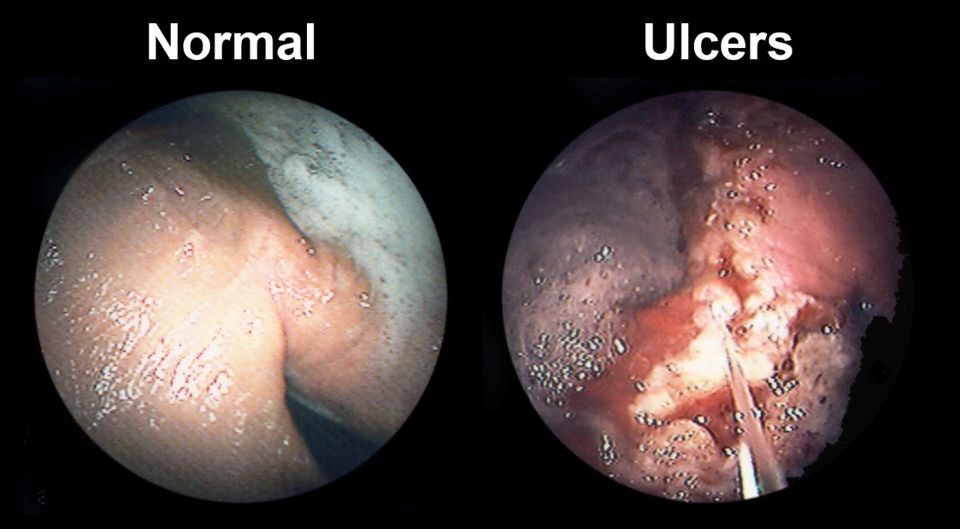Equine Gastric Ulcer Syndrome - also known as stomach ulcers or gastric ulcers - can occur in horses of all breeds and ages. They occur most frequently in horses that perform athletic activities such as racing, endurance, and showing.
Gastric ulcers can have a number of possible causes, including a high grain diet, stress, restricted feeding and some medications. Horses with gastric ulcers may show mild or no symptoms, which can make identifying them more difficult. This blog article outlines the symptoms of ulcers in horses.
What Are Stomach Ulcers in Horses?
Stomach ulcers are sores or lesions in the mucosa - the lining of the horse’s stomach. The lesions can be small or large. Normally, the mucosa is protected from stomach acid by a layer of mucus. However, if there is too much stomach acid or the mucus is reduced, this can lead to stomach ulcers.
What Causes Stomach Ulcers in Horses?
The horse’s stomach is smaller in comparison to other species. As a result, horses cannot handle large amounts of food. Instead, they are built to graze and eat frequent, small portions of feed for extended periods. In a natural grazing situation, a steady flow of acid is required for digestion, so a horse’s stomach produces acid 24 hours a day, 7 days a week.
When horses are fed twice per day, the stomach is subjected to a prolonged period without feed to neutralise the acid. In addition, high-grain diets produce volatile fatty acids that can also contribute to the development of ulcers.
Physical and environmental stressors such as transport or stall confinement are additional risk factors. Lastly, continuous administration of nonsteroidal anti-inflammatory drugs (NSAIDs) such as phenylbutazone (“bute”), can decrease the production of the protective mucus layer of the stomach, making it more susceptible to ulcers.
Symptoms of Ulcers in Horses
Symptoms of gastric ulcers vary and do not always correlate with the severity of the condition. Horses with stomach ulcers may present with mild or no obvious outward symptoms.
Horses with gastric ulcers may present with the following symptoms:
- Poor performance
- Resistance to aids when ridden
- Behavioural problems when ridden
- Resistance to the girth
- Poor appetite
- Colic signs after feeding
- Poor body condition / weight loss
- Changes in temperament
- Dullness
- Dull / poor coat condition
Diagnosing Equine Gastric Ulcer Syndrome
If you notice any changes in your horse’s behaviour or condition, or you suspect stomach ulcers, contact your vet.
The only reliable way to diagnose stomach ulcers in horses is with gastroscopy, which allows your vet to examine the horse’s oesophagus, stomach and small intestine with a camera. With the horse sedated, an endoscope is passed up the nostril and down into the stomach. The stomach is then inflated with air to allow examination.
Your vet may also recommend altering your horse’s diet or management to help reduce the risk of stomach ulcers.
Avonvale Equine Vet Practice
Based at our clinic in Ratley, near Banbury, Avonvale Equine Vet Practice covers Warwickshire, Northamptonshire, the Cotswolds and Worcestershire. Our equine vets are experienced in diagnosing and treating equine gastric ulcer syndrome in all types of horse and pony. We offer regular discounted gastroscopy clinics to new and existing clients. Our equine vets can also carry out gastroscopy as and when required by clients. Register your horse, pony, donkey or mule with our equine vet practice today.








